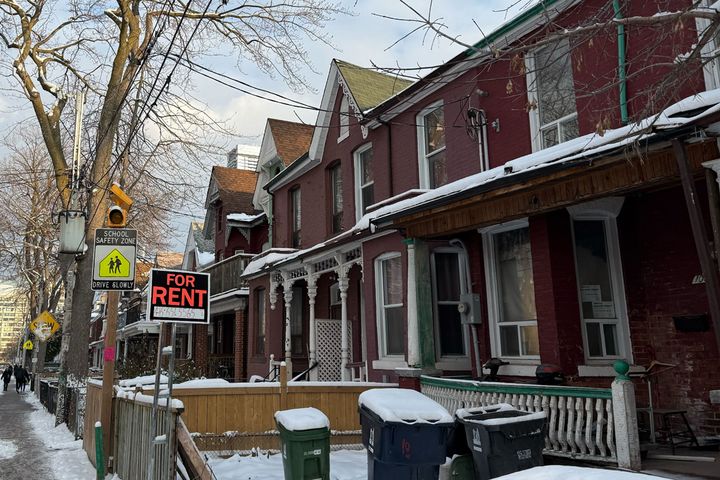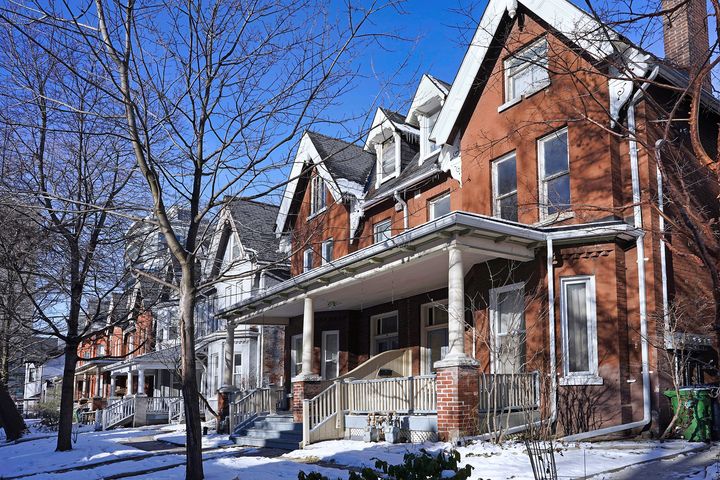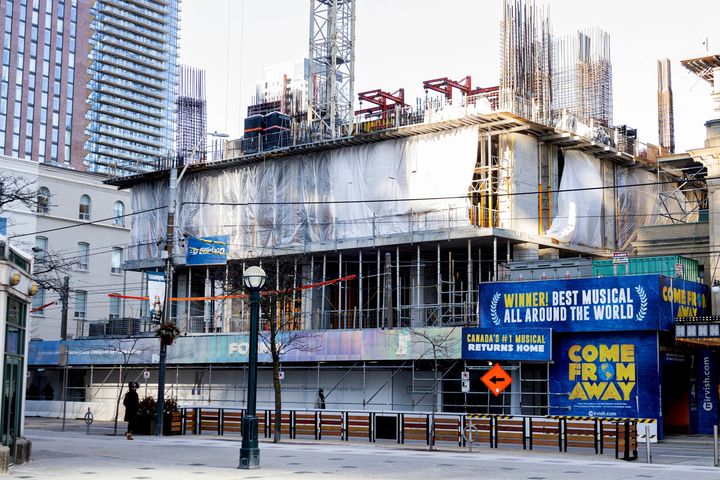This is a featured real estate listing. Find out what this means. Interested in an article like this for your property? Contact us.
$7 million Ontario home might just change your whole opinion about basements
This $6.8 million Ontario home is what real estate dreams are made of, featuring sleek modern interiors flooded with natural light and a primary suite you have to see to believe.
Located in Eastlake, one of Oakville's most prestigious neighbourhoods, 231 Wedgewood Drive is the epitome of a dream home, standing proud at a whopping 7,000 square feet, replete with luxurious finishes that'll make the prospect of bundling up and staying home all winter long seem utterly appealing.
Currently listed by Sam McDadi Real Estate Brokerage, the property makes for a perfect forever home, with all the comforts (and then some) of a luxury getaway.
The entry to 231 Wedgewood.
Combining soaring 10-foot ceilings, expansive windows and bright, white interiors, the home boasts an impressive spaciousness, not only thanks to its already ample footprint, but the modern design that maintains a sense of serenity throughout.
The living room.
The uniquely crafted, farmhouse chic property is home to both a 200 square-foot living room and 250 square-foot family room, which each feature open floorspace and infinite decorating potential.
The dining room.
The formal dining room, which can all too easily fall into stuffy territory, beats the odds with chic chevron hardwood flooring, high ceilings and easy access to the pantry.
The office.
Also on the main floor, the in-home office is a true showstopper, featuring 15" cathedral ceilings, a sleek built-in fireplace, floating shelves and direct access to the garden.
The kitchen.
The breathtaking kitchen is equipped with high-end Dacor appliances and Caesarstone countertops, which, paired with hardwood flooring and rich accents, give the whole space a homey, liveable feel.
The servary.
A butler's servary connects the kitchen to the dining room, making hosting (whether it's you or an actual butler, if you're fancy like that) a breeze.
The primary suite.
Upstairs on the second floor, the primary suite is a spectacle in every sense of the word.
The primary suite sitting area.
Beyond the sleeping area, divided with a two-sided fireplace, you'll find a spacious seating area and wet bar, perfect for when it's time for the party to move off the ground floor.
The primary walk-in closet.
In addition to the seating area (as if that wasn't enough), the suite also features a boutique-inspired walk-in closet with a number of built-in storage options.
The primary ensuite.
The enormous five-piece ensuite features a deep standalone soaker tub illuminated by large windows, heated floors, and his-and-hers sinks for a spalike experience.
A bedroom.
The second floor is home to three additional bedrooms, each of which feature headed-floor ensuites, sky-high ceilings and plentiful natural light.
The basement.
The walk-up basement is a world of its own, with a host of features and amenities that completely rewrite the old "scary basement" rhetoric.
The basement wet bar.
A full wet bar, impressive built-in wine cellar and playroom join two additional guest rooms to make the lowest level of the home an impressive refuge for guests and permanent residents alike.
The home theatre.
If that wasn't enough, in the basement, you'll also find a two-tiered home theatre, a gym with cushioned floors and mirrored walls and a three-piece bathroom with a cedar-lined infrared sauna.
Aerial view of 231 Wedgewood Drive.
Fittingly, the outdoor space on the property is equally impressive, including an in-ground pool and two-car garage with potential for a car lift.
The backyard patio.
A covered backyard patio boasts two fire features to allow for outdoor entertaining in the chilly months alongside a built-in kitchen and Napolean barbecue.
I'm not sure what your dream home looks like, but mine sure looks a lot like this.
231 Wedgewood Drive.
231 Wedgewood Drive is currently listed at $6,850,000.
Sam McDadi Real Estate Brokerage
Latest Videos
Latest Videos
Join the conversation Load comments







